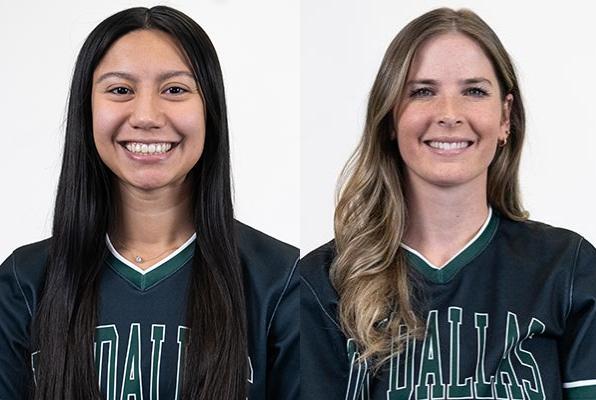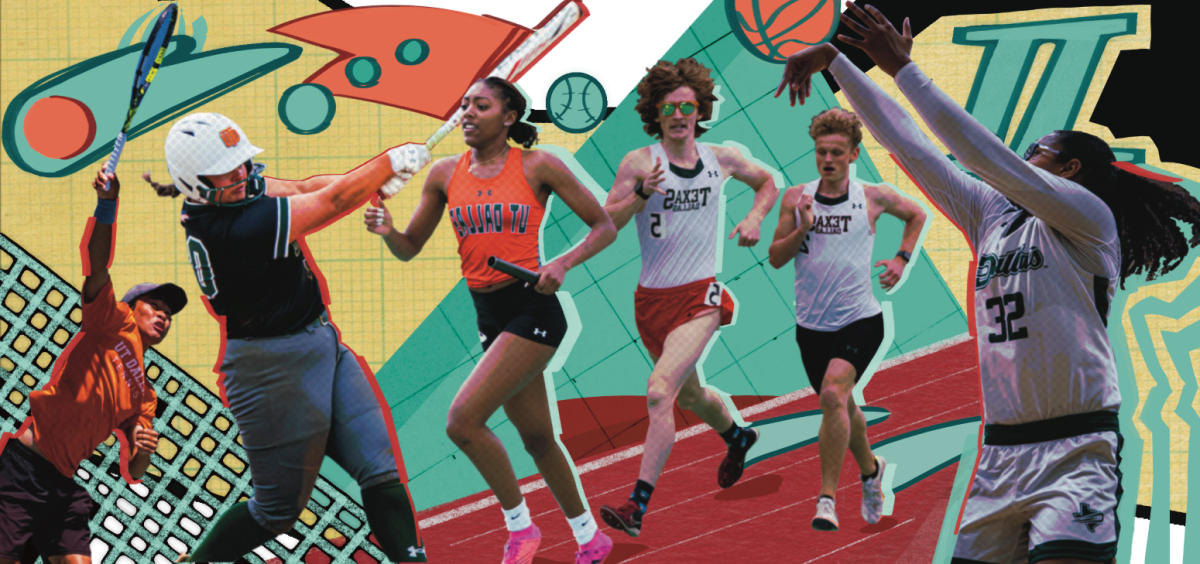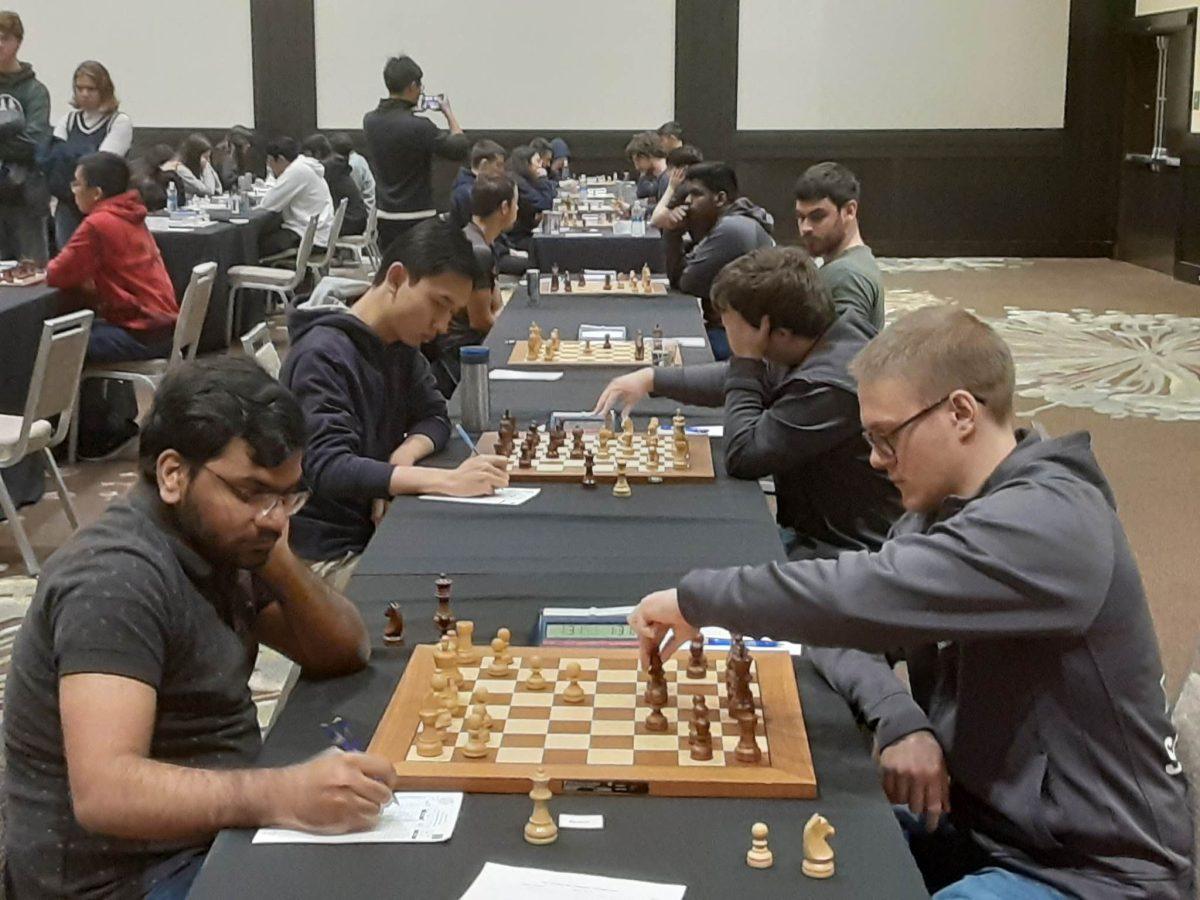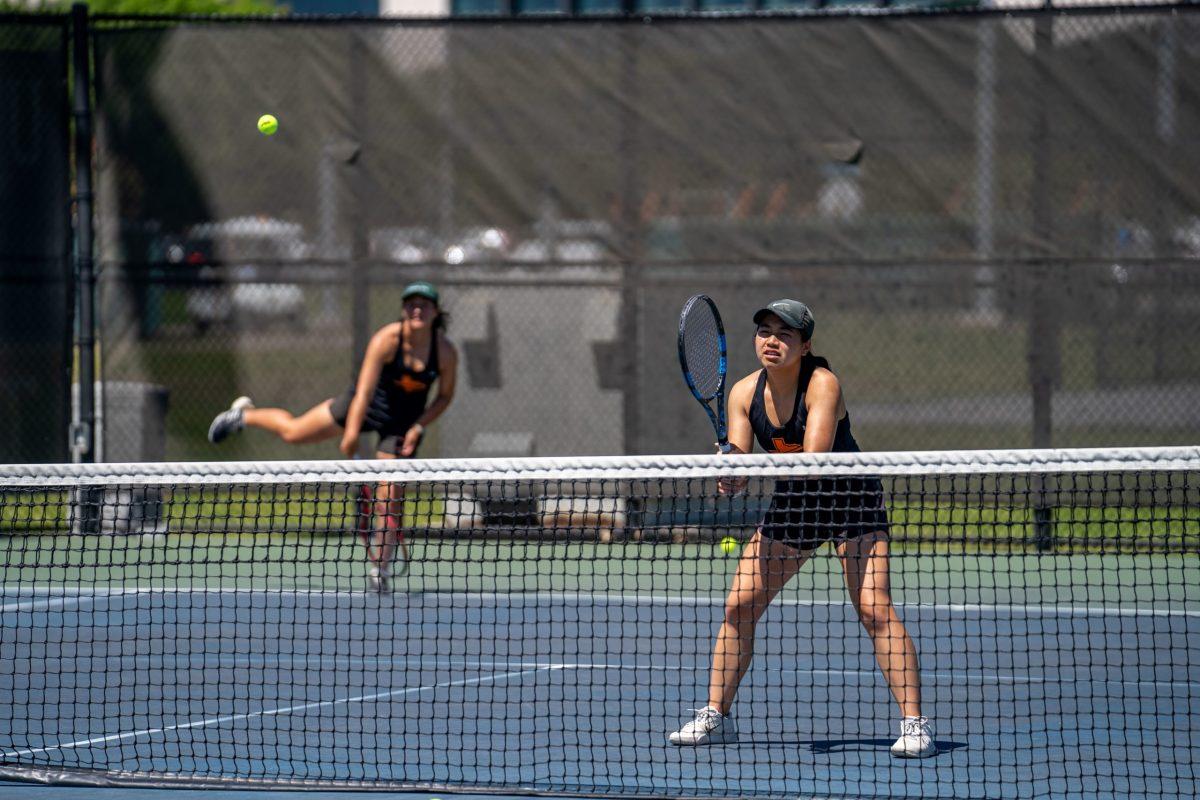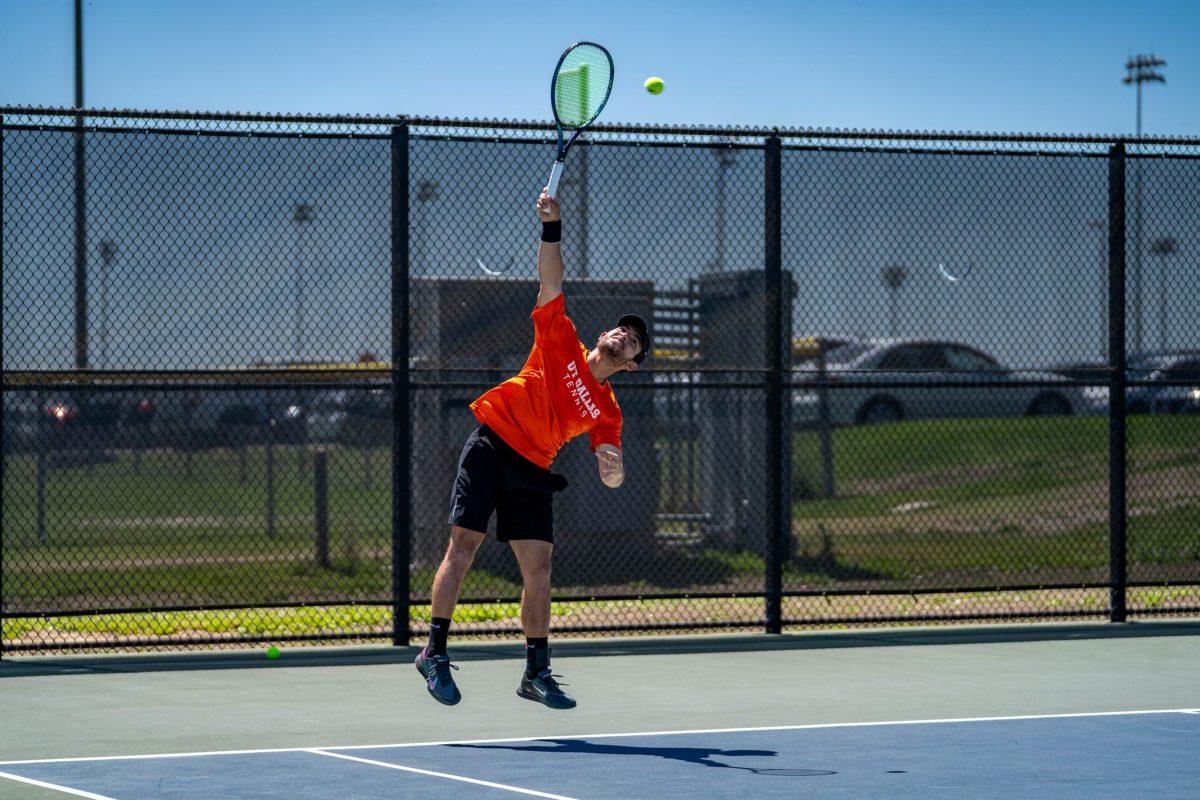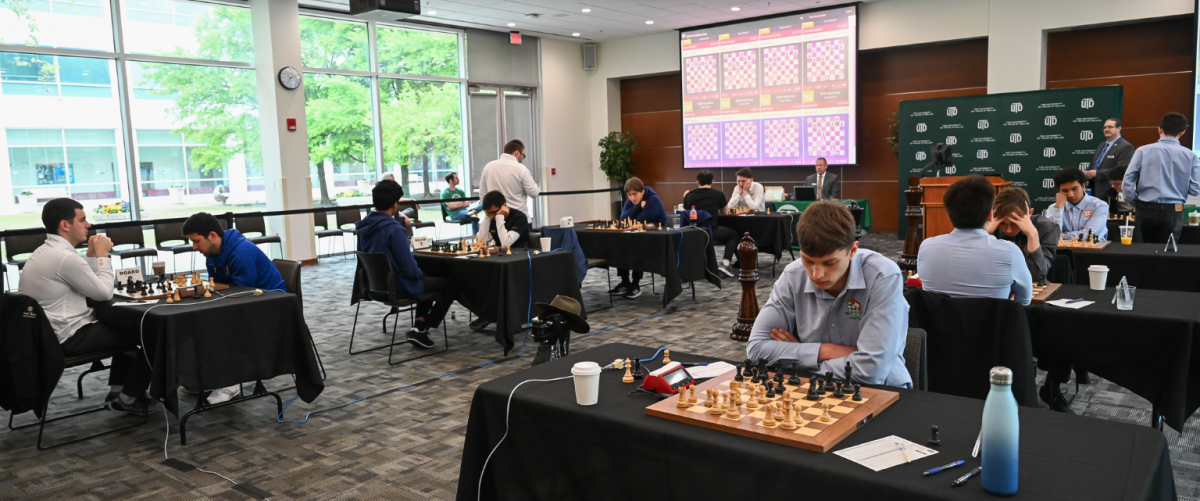Alexia Mullen and Olivia Reed discuss how they balance a rigorous academic and athletic schedules
Seniors Alexia Mullen (CITS) and Olivia Reed (biochemistry) are entering their fourth season of softball at UTD. Despite the players being loyal members of the team, both are dedicated to their academics: Mullen is an aspiring data analyst with a 4.0 GPA, and Reed has a 3.98 and is in the process of interviewing for neuroscience PhD programs.
Head softball coach Kelly Archer said that this shouldn’t come as a surprise. Both Comets have prepared themselves for prestigious careers after graduation, despite the time commitment to athletics, and they have six academic all-ASC selections between them. Rather than getting in the way of team chemistry, they believe that academic success brings UTD’s softball team closer together.
“The hardest part of my job is scheduling, because the players don’t miss class,” Archer said. “That’s what I love the most [about UTD Athletics] – we want to win conference titles, but never at the expense of our academics. We don’t have to compromise.”
Angela Marin, the Director of Athletics, said that academic excellence has always been a cornerstone of UTD Athletics. She sees success in collegiate athletics as a way to facilitate students excelling in higher education, not an objective in lieu of graduation. From the first stages of recruitment, Marin said UTD coaches emphasize academic excellence as a priority for Comet athletes.
“That’s what the culture of athletics is like here,” Mullen said. “You prioritize academics. We chose [UTD] for the sake of prioritizing our careers – and softball is a great bonus.”
This commitment to academics first also played into Reed’s decision to enroll at UTD. She said that when graduating high school, she looked for softball programs that emphasize academics, since although sports are important to her, the purpose of college is ultimately to prepare students for the real world.
“I’ve been interviewing [for PhD programs] and the others that are competing for that spot these grad schools are from Stanford, UCLA, Dartmouth, Columbia, all of these great name schools,” Reed said. “And then you see UT Dallas – me – up there interviewing with these prestigious schools. There’s no doubt: the school does set you up for success.”
Marin said that student athletes are extremely vocal about the support they need to excel, whether it’s delaying the bus ride for an away game to finish a lab project or having to miss practice for class on a specific day of the week.
Communication is especially important for students like Reed, as softball isn’t her only extracurricular commitment on campus. For example, Reed currently works as a research lab assistant in Michael Burton’s neuroimmunology and behavior lab on campus.
“Succeeding is all about scheduling and communicating,” Reed said. “Taking hard classes in the fall [because softball season is in the spring] and being extremely on-top of communicating between my different obligations. In addition to school, last year I did research, softball, and a bartending job – so, to juggle that, if you don’t communicate, it is impossible.”
Despite the time commitment, both Reed and Mullen stressed how valuable the softball experience has been to their college career. Mullen described the team as a built-in network of friends, classmates and potential mentors. Part of that she attributes to the Division III, academics-first environment: because the team isn’t competing within itself for scholarships, the players are always encouraging and supporting one another.
“The support system we have in the softball team is really amazing,” Reed added. “I’ve been, at times, really frustrated with my work, or down about a grade and they’re right there with me. Like, we’re in it together. Let’s go study, or let’s go do this to take your mind off it.”
Support goes both ways – especially for seniors. Reed and Mullen both help tutor other students on the softball team, and see that as part of their role in building a close-knit team culture.
“One of our old teammates, Megan Todd, would help me out with my finance classes,” Mullen said. “That went a long way in terms of my learning how to study. Now I help tutor some of my teammates who also have JSOM classes, and that reinforces my learning … they’re all fun to be around, so we have a good time and get good grades, which is a win-win.”
Archer said that he came back to coaching at UTD because of the caliber of students the athletics department attracts – athletes who are focused on their careers after college, but who still want to have a chance to play softball. Mullen and Reed exemplify that perfectly.
“Both seniors have balanced athletics and their academics at the highest levels,” Archer said. “This is who we want all of our kids to be: [both] highly academic and highly athletic.”

